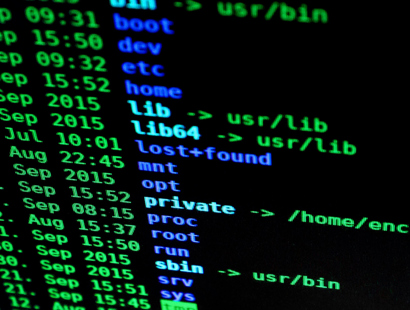
The new (virtual) frontier: UK law prepares to put digital assets on a statutory footing
A recent legislative development has received relatively little attention (at least outside certain specialist circles), but if the expected law comes into force later this year, then on its face it will be one of the most fundamental changes to the way English law recognises property and assets for over a century.
In this briefing, partner David Webster and associate Ben Voller take a closer look at digital assets, and ask what this development means in practice.
What are digital assets?
When speaking of digital assets, the immediate assumption is that we are referring to cryptocurrencies, and of course, crypto does take centre stage. But digital assets are somewhat more diverse than simply being crypto and decentralized digital currencies. They are better defined and thought of as digital representations of rights, obligations, liabilities and value created, stored, transferred and transacted digitally. That potentially sounds like NFTs, but while the NFT bubble may well have burst, digital assets are not just limited to NFTs and their relevance to the UK and global economy is only likely to increase.
What are the issues with digital assets?
When it comes to regulating digital assets, the UK has historically been a mosaic of regulatory bodies each attempting to grapple with the peculiarities of digital assets. Although in general terms English law is flexible enough to accommodate new technological developments without needing specific changes, that flexibility has its own disadvantages. It is often uncomfortable to have significant residual uncertainty around how new commercial products and services will be treated.
We are not alone though, many jurisdictions around the world have struggled to deal with digital assets. For example, whilst here in the UK we have a patchwork approach to regulation, the USA has had similar issues with states individually trying to regulate digital assets in the absence of a federal level regulation. Stepping back further, the World Economic Forum has commented that jurisdictions around the globe are all striving for a more robust form of regulation.
Digital assets are going to continue to be a growing issue and their presence in our national economy as well as on the international economic stage means there is growing pressure to address regulatory and legal issues. There is, as you might expect, volumes of discussion relating to anti-money laundering, criminal exploitation of crypto, regulatory issues, technical issues, decentralized finance and security, but the core issue that is yet to be settled in many jurisdictions is the legal status of digital assets – what, if any, status do digital assets have as property.
Are digital assets property?
Returning now to the England and Wales, property law divides personal property into two categories:
- Physical property, being things in possession, so a physical object be it moveable or immoveable (the distinction here being your laptop versus your house); and
- Things “in action” being property that is claimed and enforced through legal action – so a loan debt or an intellectual property right.
Digital assets in many cases fall through the gaps in English property law as they simply don’t fit into our long established principles of property. A bitcoin cannot be held in your hand, so it is not physical property, but it does exist on a server somewhere so you do not need to enforce or claim it through legal action.
The future of digital assets
It has been acknowledged for some time that greater clarity in this area may be helpful. A Law Commission Report in 2023, identified the need for certainty around the legal status of digital assets.
The Property (Digital Assets etc) Bill which is expected to receive Royal Asset later this year provides for a new category of property or, more specifically, provides that a thing (including a thing that is digital or electronic in nature) is not prevented from being the object of personal property because it is neither; (1) a thing in possession, nor (2) a thing in action.
It is quite important to draw attention to the exact wording of the provision, because whilst does create a third, fairly nebulous, category of property which are not physical assets or things in action, there is still residual uncertainty about exactly what digital or electronic things may fall into the category. To an extent this is probably sensible and to be expected. With the boundless advances of technology in recent years keeping an element of flexibility to avoid immediate obsolescence is desirable. But arguably the new law has not delivered the certainty it was intended to create in terms of property rights generally - it seems that the courts will be left to decide the criteria by which a digital asset falls within our new category of property. The impact will be heavily dependent on future litigation and judicial interpretation.
These residual problems however should not detract from the significant step forward in the law of property in England and Wales and the benefits which may flow from the enactment of the Property (Digital Assets etc) Bill.
The benefits
The benefits of digital assets falling within the new third category of property means that individual owners have essentially greater control over the digital assets and ability to enforce their proprietary rights in the digital assets as property.
On an economic scale, the position may be extremely beneficial as it increases market confidence and potential stability in the various cryptocurrencies and decentralized currencies. On the presumption that enforcement, tracing and recovery of digital assets as property becomes easier it is likely that regulated and mainstream financial institutions accept cryptocurrencies (and other digital assets) as investment funds and security.
This may also be supplemented by the potentially enhanced criminal recovery of digital assets, however, the anonymous and decentralized nature of many digital assets does present ongoing challenges.
Conclusion
This is a clearly significant step forward in defining digital assets as property within a new and distinct separate category. The benefits of digital assets potentially falling with the definition of property is far reaching, however, the flexibility and broad drafting of the provision does leave residual uncertainty for the judiciary and various regulatory bodies to deal with. It really is a case of watch this space!
About David and Ben
David Webster is a partner in the corporate and commercial team advising on a variety of corporate and commercial legal matters, with a particular focus on the sale and purchase of companies and businesses, company law and governance issues, and lending & security.
Ben Voller is an associate in the same team.
Get in touch
If you would like to speak with a member of the team you can contact our corporate and commercial solicitors by telephone on +44 (0)20 3826 7511 or complete our enquiry form.








